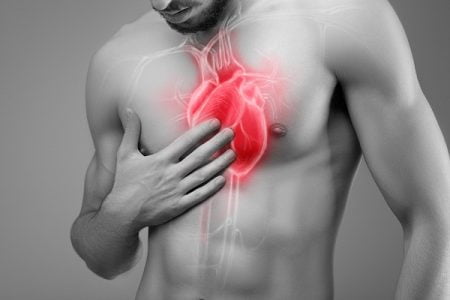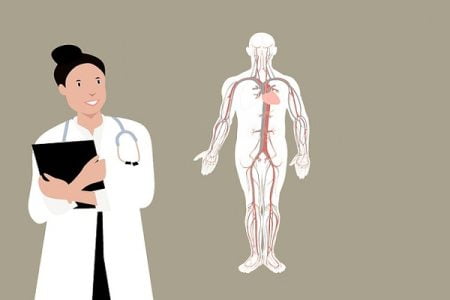Complications of Angina: Is Angina Serious?
- Updated on: Jun 27, 2024
- 3 min Read
- Published on Apr 19, 2021


Angina Pectoris
Angina is chest pain that occurs when the blood supply to heart muscles is restricted. The pain and discomfort of angina is like dullness, heaviness or tightness in the chest that sometimes radiates to the arm, neck, jaw or back.
Do you need immediate medical attention if you have angina?
There are two types of angina:
- stable angina
- unstable angina
They have different symptoms and unlike the stable angina, unstable angina requires immediate medical attention.
How Serious Is Angina Pectoris?
Angina is not a disease. It is a sign of some underlying condition that indicate that something is wrong and that there is an increased risk of heart attack, cardiac arrest and sudden cardiac death. If you get angina, you should get medical attention immediately.
Angina can be serious. Stable angina, in particular, if left untreated, can lead to more serious problems. Unstable angina can lead to a heart attack. A heart attack is a dangerous medical condition that can be life threatening and requires urgent medical attention.
Stable angina occurs with exertion and then goes away slowly. You can have stable angina for a long time.
If the pattern of your angina changes, it’s called unstable angina. This signals a danger. Unstable angina is considered to be the first sign of a heart attack.
Dangers and complications of angina: What makes angina a dangerous condition?
Major complications of angina are:
- heart attack or heart failure
- stroke
- poor emotion health
- formation of blot clots that can break off
- sudden death
These complications of angina are discussed herein.
A major concern with angina is that the blockage (which causes chest pain) also called atherosclerosis continues to get worse over time if not managed. This can cause the blood supply to the heart completely stopped at one point of time. This may trigger a heart attack, which is dangerous.
Similarly, a blockage of the blood supply to the brain may also occur, which can trigger a stroke. This is a life threatening situation. In fact, heart attack and stroke are the two most serious complications of angina.
Causes of angina such as smoking, increased cholesterol levels, high blood pressure, diabetes, and obesity can damage the arteries of your heart as plaque continues building. This can put a strain on the heart muscles and can lead to heart failure. In addition to the decreased blood flow, the plaque that forms on the arteries can also break off and cause blood clots that can block the coronary arteries.
The stress of living with such as long-term condition can also affect your emotional health significantly.
It is estimated that every year 1 in every 100 people with stable angina suffer a fatal heart attack or stroke, and as many as 1 in every 40 people suffer a non-fatal heart attack or stroke.
You can significantly reduce the risk of developing serious complications by making certain changes in the lifestyle. Read here about the prevention of angina pectoris .
When to seek medical help
If you have an angina attack and you’ve been diagnosed with the condition in past, you should take the medication prescribed by your doctor immediately. Call someone in your family or a friend and seek urgent medical attention. Angina can sometimes be very dangerous if urgent attention is not paid.













1 Comment
Your point of view caught my eye and was very interesting. Thanks. I have a question for you.